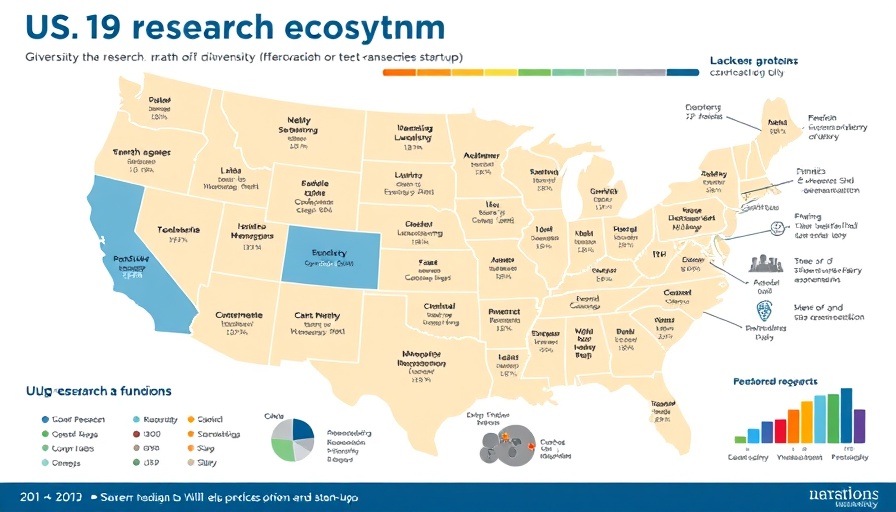
The Decline of America's Scientific Leadership
Once seen as a beacon of innovation, the United States now faces critical challenges that threaten its status as a science superpower. This transformation can be traced to a variety of factors that include shifting government priorities, budget constraints, and a growing reliance on private sector solutions. Over the last few decades, as federal funding for scientific research has dwindled, the ripple effects have been felt across universities and laboratories nationwide.
Budget Cuts: The Catalyst of Change
One of the foremost issues is the significant reduction in budget allocations for research and development. As finance professionals, institutions must recognize the implications of this decline. With resources shrinking, talented researchers are either leaving the field or moving abroad where funding is more robust. This trend not only affects the immediate workforce, but also jeopardizes the long-term sustainability of American innovation.
The Role of Private Sector Innovation
While private enterprises have stepped up to fill some gaps, this shift has created a landscape where profit often trumps public good. Financial institutions may see both risks and opportunities within this dynamic. As private funding becomes the primary driver for research, there's potential for groundbreaking discoveries, yet it's vital to consider whether the resultant innovations truly align with public needs and ethical standards.
Outlook: Reclaiming America's Competitive Edge
Future predictions suggest that reversing the tide will require intentional policy adjustments and increased investment from both the public and private sectors. Balancing fiscal restraint with the need for innovation could lead to a resurgence in America’s scientific output. Financial institutions can play a pivotal role by advocating for strategic investments in research that prioritize long-term growth and global competitiveness.
In this shifting landscape, professionals in finance must not only adapt to these changes but also explore avenues for supporting research initiatives that promise significant returns for society—not just in dollar signs, but in quality of life improvements. The call for action is not simply to recognize the challenges at hand, but to actively engage with them. As financial service providers, now is the time to champion science and technology initiatives, ensuring that the U.S. retains its foothold in the global innovation race.
 Add Row
Add Row  Add
Add 



 Add Row
Add Row  Add
Add 


Write A Comment